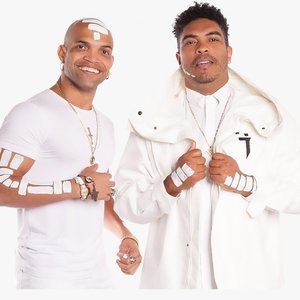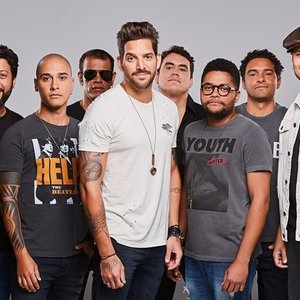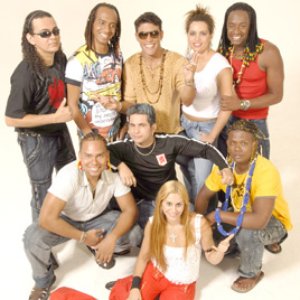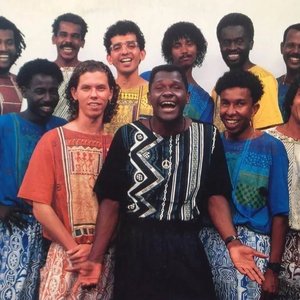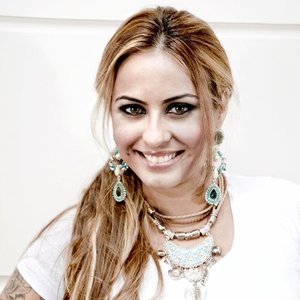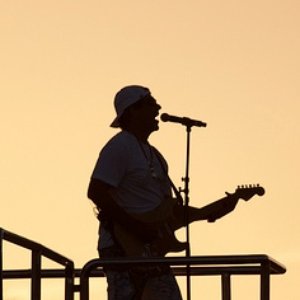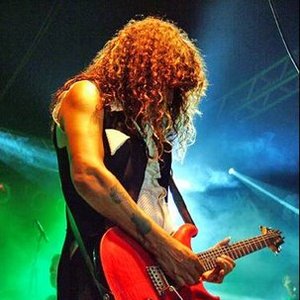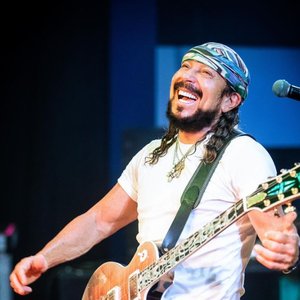Biography
-
Years Active
1979 – present (45 years)
-
Founded In
Salvador, Bahia, Brazil
-
Members
- Germano Meneghel
Olodum is an Afro-Brazilian percussion school from the city of Salvador, Bahia. It was founded on April 25, 1979, during the carnival period as a leisure option for the residents of Maciel-Pelourinho, thus guaranteeing them the right to play carnival in an organized block. It is a non-governmental organization (NGO) of the black Brazilian movement, recognized as public utility by the Bahia state government. Its headquarters is located in Salvador's historic center, Pelourinho, where most of its presentations take place. It develops actions to combat social discrimination, stimulates self-esteem and pride of Afro-Brazilians, and defends and fights to ensure the civil and human rights of marginalized people in Bahia and in Brazil.
After its debut in the 1980 carnival, the band conquered almost two thousand members and started to approach historical themes related to African and Brazilian cultures. The band's first LP, "Egypt, Madagascar", was recorded in 1987 and achieved great success in Bahia and the rest of the country with the song "Faraó". The idea of this LP was to pay homage to the group's roots and show Brazil the Mama Africa, and also to present to the world how the group came about, from the drumming to the influences of the African Gods. Soon after, Olodum became known internationally as an Afro-Brazilian percussion group and toured to many countries in Europe, Japan, and almost all of South America. In 1988 Simone recorded "Me Ama, Mô" live in Pelourinho with Neguinho do Samba and Olodum on the album Simone (1989). One of the moments of greatest exposure for the group was in 1990, when it took part in the track "The Obvious Child", from Paul Simon's album, The Rhythm of the Saints, whose videoclip was recorded in Pelourinho and shown in over a hundred countries. After that, Olodum recorded with other nationally and internationally acclaimed musicians such as Caetano Veloso, Daniela Mercury, Margareth Menezes, Pet Shop Boys, Wayne Shorter, Herbie Hancock, Jimmy Cliff, and Michael Jackson, spreading the word about their mix of rhythms that includes African drums, reggae, samba, and Latin rhythms. In 2013, he performed a show on the sunset stage of Rock in Rio with the New Zealand singer, songwriter and instrumentalist Kimbra, including a cover of the song "They don't care about us. In addition, she participated in the official music, consequently of the 2014 World Cup opening, with rapper Pitbull and singers Jennifer Lopez and Claudia Leitte. In parallel to its artistic success, the band Olodum participates in social movements against racism and for civil and human rights.
The Olodum Theater Band is a theater group created and linked to the bloco-afro, formed by black actors in 1990.
Over the years, the Olodum Theater Band disengaged from the bloco-afro, and took up residence at the Vila Velha Theater. Thanks to the Bando's occupation, the space was revitalized in 1994 and began to be renovated, being re-inaugurated in 1998. The Bando is still at Teatro Vila Velha today and has produced actors who have consolidated their careers, such as Lázaro Ramos, for example.
Focused on issues of the Brazilian black in its various aspects, the Bando, as it is more commonly called, develops its own language in a format of Experimental Black Theater.
Since October 25, 1984, the Olodum School has been a real space for participation and expression of the afro-descendant community, constituting a national and international reference for its innovative work with art, education and cultural plurality.
This pioneering Afro-Brazilian popular education project originated with the Rufar dos Tambores project, developed in 1984 by Olodum, consisting of free percussion classes of the Afro-Brazilian bloc, and of short term Afro-Brazilian courses.
Initially it aimed to meet a request from the Maciel/Pelourinho community to form a percussion band made up of children and teenagers from the neighborhood.
Artist descriptions on Last.fm are editable by everyone. Feel free to contribute!
All user-contributed text on this page is available under the Creative Commons Attribution-ShareAlike License; additional terms may apply.

